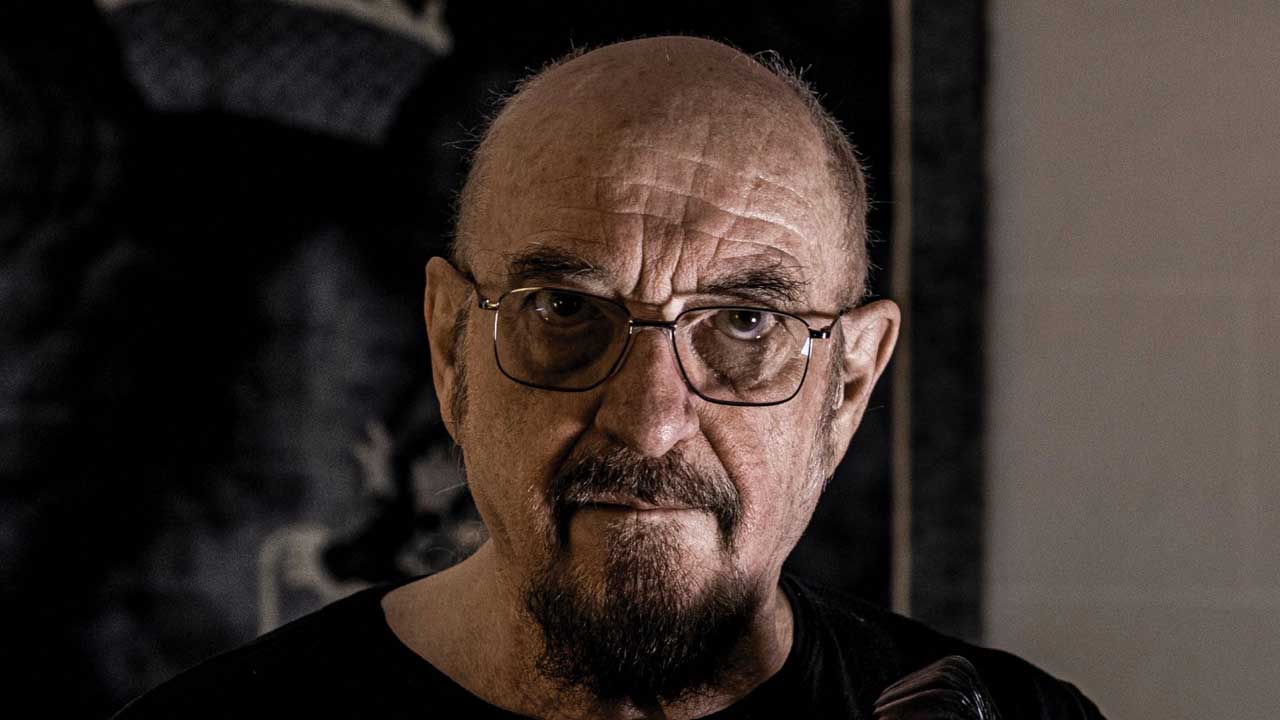Three years ago Lucinda Williams lost her home to a tornado and suffered a stroke, but new album Stories From A Rock N Roll Heart is testament to an indomitable spirit
"It's the hardest thing I’ve been facing. It affects so many things: how I write songs, how I record": Lucinda Williams hasn't had it easy, but she's proved herself a fighter

The covid pandemic made 2020 a tortuous year for everybody, and Lucinda Williams had it rougher than most. That January, a tornado tore through her adopted home town of Nashville, ransacking the alt.country trailblazer’s house. Lockdown was next.
Then in November, Williams suffered a stroke. She spent a week in intensive care, the left side of her body frozen. Her recovery is ongoing, including her having had to learn to walk all over again. But she’s still unable to play the guitar, the instrument on which she wrote such stellar records as 1998’s Grammy-winning Car Wheels On A Gravel Road and 2007’s West.
Now comes her excellent new album, her fifteenth, Stories From A Rock N Roll Heart. Williams, who turned 70 in January, pieced together its 10 songs with the help of collaborators including her husband/manager Tom Overby and New York rocker Jesse Malin; Bruce Springsteen and Patty Scialfa sing backing vocals on New York Comeback and Rock N Roll Heart.
Overall it’s a record stalked by melancholy and a sense of mortality (Stolen Heart and Hum’s Liquor, pay tribute to, respectively, the late Tom Petty and The Replacements’ self-doomed guitarist Bob Stinson), but also one with an indomitable spirit, and fully befitting of the epithet Time magazine once bestowed upon Williams: “America’s best songwriter”.

What’s your immediate recollection of Tuesday, November 17, 2020?
That I felt very tired. Then I was laying down on the floor at home. My husband Tom found me. He got on the phone with the doctor. Tom described what was going on and the doctor knew enough to figure out what was happening. I was fortunate to be able to go to a very good medical centre at Vanderbilt University.
They got me into rehab quickly. I was working with physical therapists in the hospital every day. My recovery’s not a fast thing and it’s forced me to have patience, but my progress is good. I’m moving along. I’m just not remembering everything right now.
Sign up below to get the latest from Classic Rock, plus exclusive special offers, direct to your inbox!
You started on the guitar when you were twelve years old. How difficult has it been to adapt to not being able to play?
It’s the hardest thing I’ve been facing. It affects so many things: how I write songs, how I record. Usually in the studio the band would follow me. I’ve had to have another guitar player try to play the way I would play. I think of melodies in my head a lot, but mostly it’s been lyrics. And I’ve got a great band. They have my back.
What defines a rock’n’roll heart for you?
A lot of what we’ve been talking about. Fighting against challenges. Uphill battles. Being strong. An attitude. Sometimes it can feel like it’s you against the world. It’s the way most teenagers feel, I guess. At heart I’m still that kid who was starting out learning how to play guitar and listening to Bob Dylan, the Rolling Stones and The Doors.
How did Bruce Springsteen come to sing on the new record?
That came from sitting around the table with Tom Overby and Jesse Malin. It was Tom who said: “Wouldn’t it be great to get Bruce on these songs?” And you must realise that Jesse is the unofficial mayor of the music scene in New York City. He knows everybody. Jesse said: “I’ll get hold of Bruce,” and he did. It thrills me every time I hear Bruce’s voice on the record. I still can’t get over it.
What did Tom Petty mean to you?
Tom meant the world to me. We were just starting to really get to know each other. I felt connected to Tom on a lot of levels. He asked me to open the very last shows he did, at the Hollywood Bowl (in September 2017). They were wonderful shows, everybody was in good spirits. And then he was gone. His death really affected me.
And what of Hum’s Liquor, which you wrote for Bob Stinson?
My husband is from Minneapolis, and he was friends with Bob. The idea for the song was Tom’s. When he was living in an apartment in Minneapolis, Tom would look out the window every morning before he went to work and see Bob walking to the liquor store at the same exact time each day. Bob was such a good person, extremely talented. There was a Hum’s Liquor Store. Bob lived where he did to be close enough to walk there every day.
Your singing voice is very expressive, articulating the emotional depths of your songs. How did you learn that craft?
Trial and error. A lot of my education was from listening to other artists. I got into all the folk singers back in the sixties, and I would get really frustrated because they all had these high, beautiful voices. I told Emmylou one time how I wished I was able to sing more like her. She said: “You just work with your limitations.” That’s what I ended up doing. You learn what you have, and then you work with it.
How did you celebrate your seventieth birthday?
Two of my girlfriends threw me a surprise party at the hotel where we were staying in LA. Everybody I ever knew in LA was there. They had a cake. I have some good friends. I haven’t changed that much. Pretty much all ever I wanted to be able to do was not to have to work a day job. To be able to make a living from playing music.
What was the worst day job you had?
Oh, god. Answering the phone in an office building. I was let go because they said I didn’t sound cheerful enough. I was most happy when I was living by myself in a little apartment in Silver Lake, LA [in the early 80s]. Sony Records had given me a salary to live on for six months. I got up every day and just worked on songs. The sun would shine through the window. I wrote a lot of good songs during that period.
What’s your greatest remaining ambition?
I’ve been blessed so much already, it’s hard for me to think of something I haven’t already done. Except maybe jump out of an aeroplane with a parachute – which I’ve no desire to do.
Stories From A Rock N Roll Heart is out now via Highway 20 Records/Thirty Tigers.
Paul Rees been a professional writer and journalist for more than 20 years. He was Editor-in-Chief of the music magazines Q and Kerrang! for a total of 13 years and during that period interviewed everyone from Sir Paul McCartney, Madonna and Bruce Springsteen to Noel Gallagher, Adele and Take That. His work has also been published in the Sunday Times, the Telegraph, the Independent, the Evening Standard, the Sunday Express, Classic Rock, Outdoor Fitness, When Saturday Comes and a range of international periodicals.

